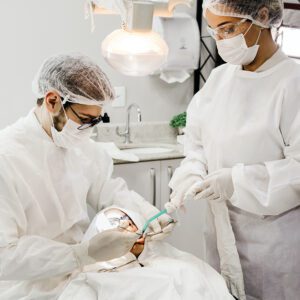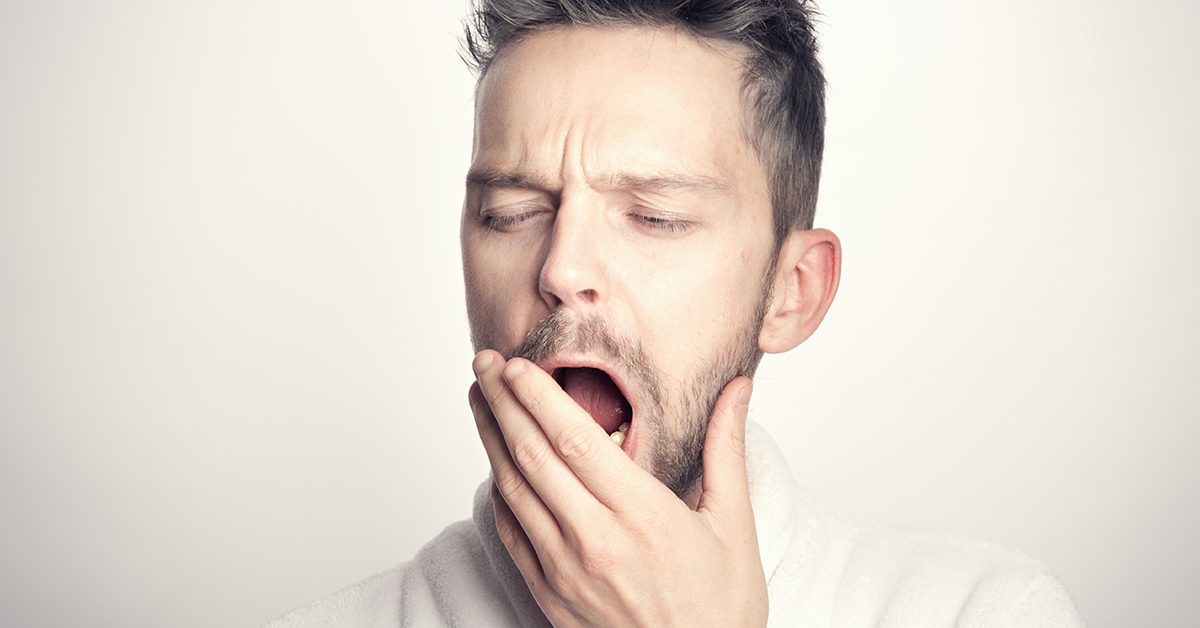You have probably heard of Botox, commonly used to enhance lips and cheeks or smooth out severe frown lines and wrinkles to make you appear younger. But did you know Botox can also help relieve pain caused by temporomandibular joints (TMJ)? Over the past few years, Botox treatment has developed into one of the most well-liked procedures because it can also help treat other conditions, such as TMJ. So, let’s look at how exactly it’s being used and why you should talk to your dentist here at Advanced Indiana about the procedure.
Botox and TMJ
Botox is a popular cosmetic procedure that has been used for decades. It involves the injection of a purified form of purified botulinum toxin type A into the muscles of the face and neck, which prevents them from contracting. By relaxing the underlying facial muscles, Botox can create a smoother, more youthful look by diminishing wrinkles. The effects of Botox usually last three to four months, after which time another injection may be necessary to maintain results.
Today, Botox is becoming a popular treatment for TMJ due to its effectiveness in reducing pain and dysfunction. Botox works for TMJ because it decreases the intensity of muscle activity in the jaw, neck, and other areas of the face. This helps reduce spasms, tension, and pain in the TMJ area while also improving the range of motion. Studies have found that not only can Botox help alleviate symptoms related to TMJ, but it can also prevent further deterioration or recurrence of the disorder. Furthermore, Botox has proven to be a safe alternative to more traditional treatments, such as surgery, which can be invasive and expensive.

TMJ Causes and Symptoms
TMJ is characterized by intense pain in the jaw joints, surrounding muscles, and ligaments. The most frequent cause of TMJ pain is damage to the jaw joints and surrounding muscles and tissue. Lockjaw, which may be a more familiar term, is a more severe TMJ complication where stress on the jaw locks and prevents you from opening your mouth wide. In addition, bruxism (teeth grinding or clenching), extreme jaw movements, aggressive chewing of hard foods, arthritis, stress, and jaw dislocation of the jaw’s ball and socket joint disc can contribute to TMJ pain. Stress from other sources, unrelated to the use of the jaw muscles, can also make TMJ more uncomfortable.
You might notice tense muscles in your face and neck when stressed out from work, school, or busy life. You might have your teeth clenched tightly together. Here are some symptoms you may be experiencing in TMJ Disorder:
Sore cheeks and jaw
Tension headaches and migraines
Ringing in your ears
Neck and facial pain
Severe pain around neck and ears
How does Botox work on TMJ?
Botox helps patients with TMJ disorder symptoms relax tense jaw muscles and reduce pain. By injecting botulinum toxin into the masseter and temporalis muscles, pain and discomfort from TMJ are reduced, and muscle activity is restricted. You will find it easier to address other environmental stressors that intensify TMD symptoms once you control your neck aches, facial pain, headaches, swelling, and discomfort.
Studies show that Botox injections significantly reduce pain and increase mouth movements for three months after the procedure. You’ll begin to notice other changes once the muscles around your TMJ relax. Once these muscles relax, you’ll notice:
- You sleep better.
- Your headaches dissipate.
- Less teeth sensitivity.
- Looser facial muscles.
Benefits of Treating TMJ with Botox
Although Botox for jaw pain is frequently recommended to reduce discomfort, this is not the only benefit of TMJ Botox therapy. Other potential benefits include:
Reduced Frequency of headaches
Since Botox helps relax the forehead, jaw, and other tense muscles, it can help reduce the frequency of headaches and chronic migraines caused by TMJ.
Better Sleep and Relaxation
You can get better sleep and relaxation with Botox treatment if you have TMJ because it relaxes your jaw muscles, helping you be at ease.
Decreased Anxiety
Getting these injections can relieve stress and anxiety-related tooth pain because Botox can help the jaw relax.
The Risks of Botox for TMJ
Using Botox for TMJ does carry some risks. Injecting botulinum toxin into the affected area can cause negative side effects such as temporary paralysis of muscles in the face and mouth, difficulty in swallowing, temporary vision problems due to injection, and even systemic reactions such as headaches and nausea.
There is also a risk that the patient may not respond to the treatment or that the effects may not last as long as expected. Additionally, there have been reports of an increased incidence of adverse events associated with Botox injections for TMJ when compared to other treatments, such as physical therapy or nightguards.
Get the Best Dental Services at Advanced Indiana!
Botox is a prescription medicine and must be used only under the care of a licensed and skilled healthcare provider. At Advanced Indiana in Fortville, IN, we make sure that we only give you the best dental advice and services for your dental needs. We can also be your No. 1 provider of general dentistry, cosmetic dentistry, and restorative care. So, contact our office today and request an appointment with us!
Photo by Sander Sammy on Unsplash
Photo by Adrian Swancar on Unsplash
Photo by Jonathan Borba on Unsplash


